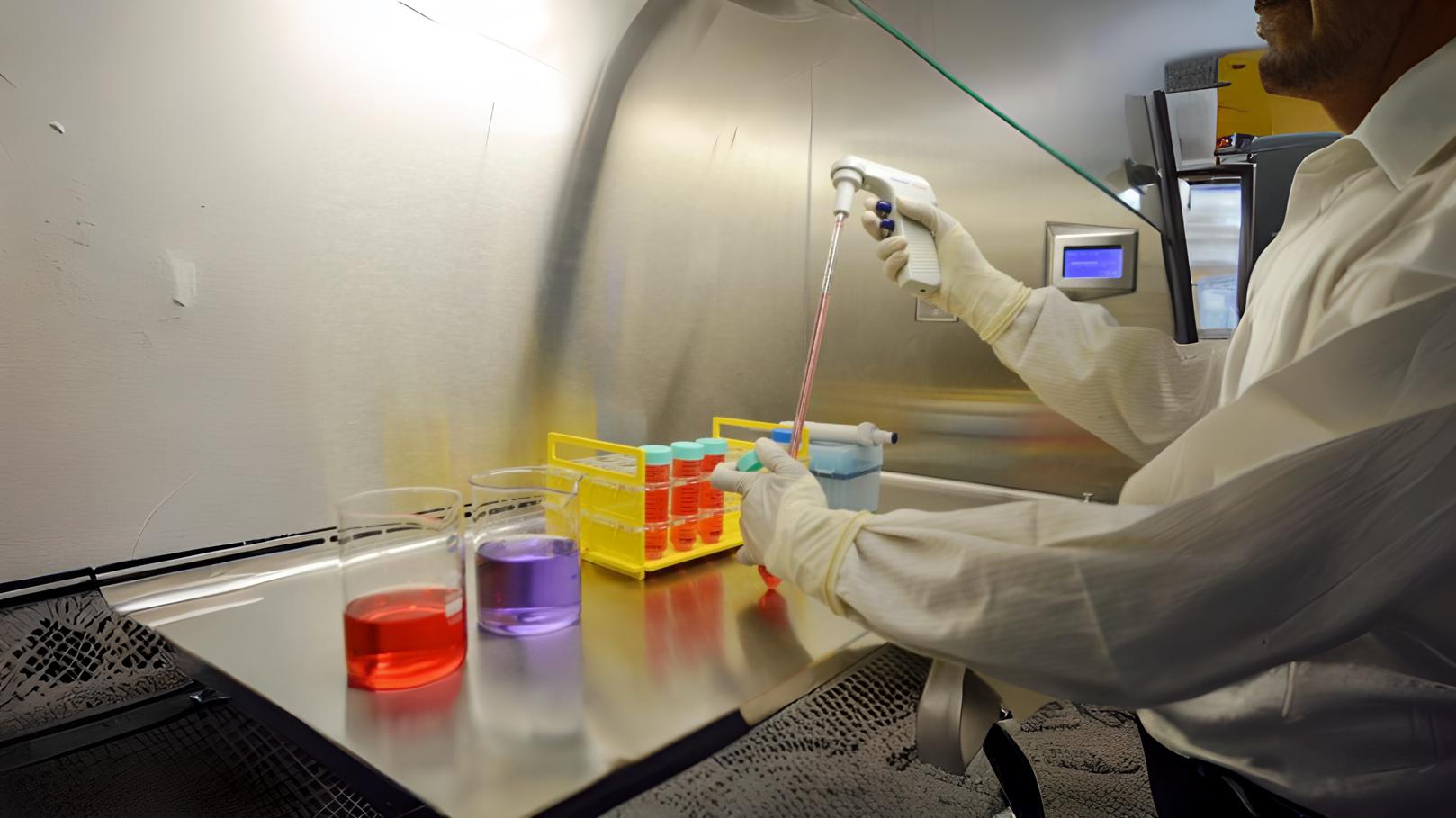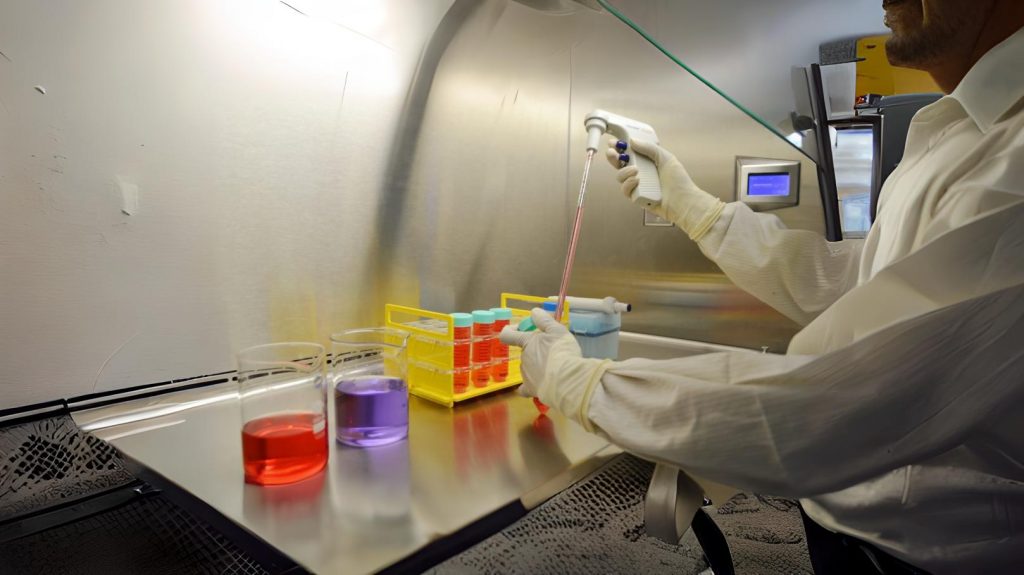Innovations in Oncology Today: An Interview with Jessicca Rege
 3 years ago
By Josh Neil
3 years ago
By Josh Neil

Even aside from the COVID-19 pandemic, 2020 saw a number of innovations in the oncology space, from novel cytokine development to use of NGS to further patient-centric treatment. We spoke to Jessicca Rege, Vice President and Head of Oncology at Alkermes, about innovations in oncology and the notable trends she has seen over the past year.
For daily articles on the latest pharma trends and innovations, as well as interviews with leading experts and in-depth industry White Papers, subscribe to PharmaFeatures.com.
Can you give us a brief introduction to your background and current activities?
Jessicca Rege: I am a seasoned pharmaceutical executive with over 15 years’ experience in R&D and global medical affairs, from pre-IND to Phase IV/compound commercialisation of small molecules and biologics in oncology.
Currently, I am Vice President and Head of R&D Oncology at Alkermes, where we are working on some really exciting approaches in protein engineering to develop novel cytokines for immunotherapy. Our most advanced asset is nemvaleukin alfa, a novel engineered IL-2 – which is now in phase 2 trials.
What is the most exciting area in oncology that you’re currently working in?
JR: I fee that novel cytokine development is one of the most exciting parts of oncology. High dose IL-2, our first target, was the first immunotherapy to be approved in melanoma and renal cell carcinoma, though its use has been limited by side effects. These have been primarily driven by IL-2’s ability to bind to both the high affinity receptors, expressed on immunosuppressive Tregs and vascular endothelial cells.
IL-2 also binds to its intermediate affinity receptors, expressed on cancer-fighting CD8+ T-cells and NK cells which drive their expansion. Therefore, to navigate IL-2’s unwanted effects, we designed a novel molecule, nemvaleukin (formerly known as ALKS4230) by fusing IL-2 to the alpha sub-unit (or the high affinity sub-unit) of the IL-2 receptor complex.
In doing this, it selectively targets the intermediate-affinity IL-2 receptor complex in order to preferentially activate CD8+ T cells and natural killer cells. The hypothesis is that by selectively binding the intermediate receptor of IL-2 could enhance the therapeutic potential, while potentially avoiding acute toxicities associated with high dose IL-2. We are very encouraged by the clinical responses we have seen so far with nemvaleukin in our trials.
What have been the notable trends in oncology in the past year? What has driven these trends?
JR: This past year has seen COVID-19 have great impacts on the world in which we live, but also on how we handle clinical trials amidst a global pandemic. The first challenge of COVID was ensuring our patients were still getting the needed treatments. We faced a lot of challenges this year around protecting patients against the virus, while ensuring they get their necessary therapies.
As a company, we have been able to navigate through these and continue our trials seamlessly. As we move into the next phase of COVID, the questions we need to understand as an industry are: how does COVID impact the treatment paradigms of immuno-oncology drugs, and how vaccinations play a role in this. I am looking forward to the days of normalcy in clinical development, but I think we are all moving towards a new mass vaccination.
I do think that in the past year we have moved science forward in a tremendous fashion. Look at how fast we in the pharma industry reacted to the need for new vaccines and how fast we achieved getting these drugs to patients in need. I think this set the bar for urgency to deliver effective treatments (not just vaccines) so we should all accept the challenge to get our drugs to patients urgently as we better understand how to safely administer them.
Another trend in the oncology space relates to innovative markers beyond PDL1 testing in IO and from tissue to liquid – as with the entrance of tumour agnostic approvals in MSI-H and TMB+ tumours, we keep moving the needle. Others include the pan-tumour and liquid biopsy companion diagnostics testing approvals for multiple drugs; and use of NGS to understand more about the right drugs for the right patients. We are not just moving the needle with innovative treatments, but moving the needle towards precision medicine.
Where should oncology experts be focusing their efforts in light of these priorities?
JR: I think the focus still remains on our patients, and how to develop drugs that meet their unmet needs. This includes developing better combination strategies that are not just additive but are synergistic when used together. This is where drug development and companion diagnostics can play such an important part in bringing great therapies to patients.
Another important aspect is to improve the convenience for patients both in terms of administration and schedules. The goal should be to offer them a choice and a flexibility of options to choose from – all without compromising on safety or efficacy. And last but not least, it is important to design trials that meet patients’ real-world needs and address their challenges. We at Alkermes have made this a top priority, and we strive to work together with patients and advocates on our trial designs.
Which innovations or new technologies most excite you right now / in the near future?
JR: We have seen the integration of unprecedented AI-based approaches in target identification across therapeutic areas, including oncology. In addition, I am excited about alternative approaches to trial designs to make them more efficient and cost-effective in our development. Also with the pandemic, telehealth has come to the forefront of healthcare. I believe it will have an increasing impact on the way we interact with our patients and run our trials.
The next exciting area is wearables! From a clinical trial perspective, wearables may be an answer to gathering basic information from patients in a safe and accurate way without requiring them to travel.
What topics would you most like to hear discussed in the next oncology event?
JR: I would like to hear about Innovative and new emerging treatments, adaptive trial design, use of real world evidence, synthetic control arms, we already talked about precision medicine and need for biomarker research. The list is infinite as we are moving the bar with oncology development. Innovative treatments and combinations of newer IO agents such as cytokines, other checkpoint inhibitors and even newer forms of checkpoints like oral PD/L1.
Innovation in oncology clinical drug development is needed, not only to enable more effective and efficient development of new cancer therapies, but also to give patients – including those with rare forms of cancer access to therapies much sooner. All of this is our mission as clinical developers in oncology.
Anything else you would like to add that people should know?
JR: I think the only thing I would add is that as an industry, we are blessed with abilities to really make a change in the lives of patients and their families. We must always remember that each cancer patient is more than just one human being. Therefore, I am thrilled to be involved with a company and a program that truly cares for patients and strives every day to bring innovative medicines to them.
To discuss these topics further with sector experts, and to ensure you remain up-to-date on the latest in clinical development, sign up for Proventa International’s Clinical Operations & Oncology Strategy Meeting, set for 27 May 2021.
Joshua Neil, Editor
Proventa International

Navigating the Complex World of Global Regulatory Affairs in Oncology
In today's fast-paced global pharmaceutical landscape, the regulatory affairs sector plays a pivotal role in ensuring the safety, efficacy, and market access of oncology drugs. As the demand for innovative cancer therapies continues to grow, understanding the intricacies of global...
11 months agoNavigating the Complex World of Global Regulatory Affairs in Oncology
In today's fast-paced global pharmaceutical landscape, the regulatory affairs sector plays a pivotal role in ensuring the safety, efficacy, and market access of oncology drugs. As the demand for innovative cancer therapies continues to grow, understanding the intricacies of global...
11 months ago
Overcoming the Hurdles: Navigating the Challenges in Oncology Clinical Trials
In the world of medical research, oncology clinical trials are at the forefront of innovation and discovery. These trials play a crucial role in advancing our understanding of cancer and developing more effective treatments. However, the path to successful oncology...
11 months agoOvercoming the Hurdles: Navigating the Challenges in Oncology Clinical Trials
In the world of medical research, oncology clinical trials are at the forefront of innovation and discovery. These trials play a crucial role in advancing our understanding of cancer and developing more effective treatments. However, the path to successful oncology...
11 months ago
Embracing a Patient-Centric Approach in Oncology Trials
In the realm of healthcare and medical research, the term "patient-centric" has gained significant traction in recent years. This shift in focus towards prioritizing patients' needs and preferences is not only transforming the healthcare industry but is also making waves...
11 months agoEmbracing a Patient-Centric Approach in Oncology Trials
In the realm of healthcare and medical research, the term "patient-centric" has gained significant traction in recent years. This shift in focus towards prioritizing patients' needs and preferences is not only transforming the healthcare industry but is also making waves...
11 months ago